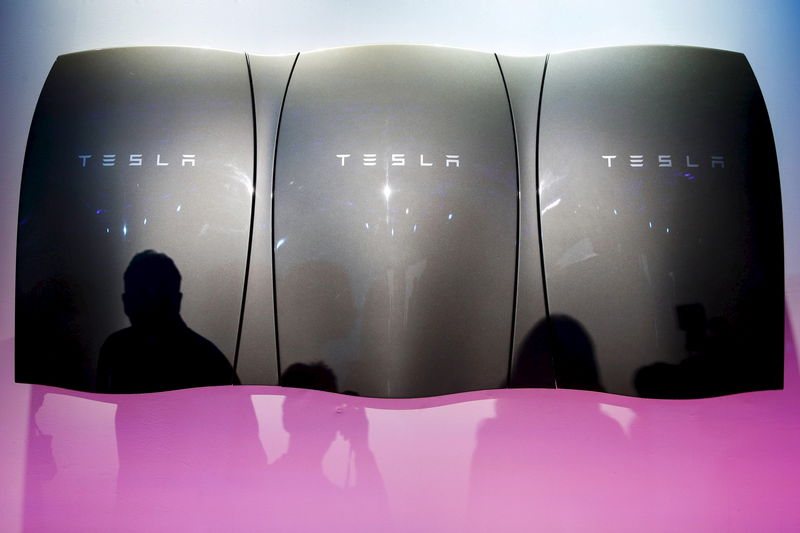On Thursday, Piper Sandler confirmed its Overweight rating on Tesla (NASDAQ:TSLA) shares, maintaining a $310.00 price target for the electric vehicle manufacturer. The firm's analysis highlighted a notable decrease in Tesla's automotive cost of goods sold (COGS) per unit, which dropped from $36,800 last quarter to $35,100 in Q3.
The reduction in COGS per unit was not attributed to warranty expenses, which actually rose to 4.9% of revenue compared to 4.1% in the previous quarter.
The analyst from Piper Sandler expressed that the exact reasons for the cost reduction are unclear but speculated that several factors might be contributing. These include a shift in the mix of vehicles produced in Shanghai, production tax credits under the Inflation Reduction Act (IRA), and lower input prices due to a decrease in raw material costs and company-wide cost-cutting measures.
Moreover, increased revenue from Tesla's self-driving software may have improved the gross margin, although this would not directly affect the COGS per unit.
Tesla's performance is closely watched by investors, as the company is a leading player in the rapidly growing electric vehicle market. The firm's analysis suggests that despite the lack of clarity on the specific drivers of the COGS reduction, the overall decrease is seen as a positive development for Tesla's financial health.
The maintained Overweight rating suggests that Piper Sandler remains confident in Tesla's potential for stock performance. The firm's commentary indicates an interest in gaining more detailed insights into the factors behind the lower COGS per unit and may seek further explanation from Tesla to provide a clearer picture for investors.
The price target of $310.00 set by Piper Sandler indicates the firm's expectation of Tesla's share value, which is based on various factors including financial performance and market trends. As Tesla continues to navigate the competitive and innovative landscape of electric vehicles, such analyses from financial institutions help inform the investment community.
In other recent news, Tesla has seen a flurry of activity from various financial firms. Deutsche Bank (ETR:DBKGn) maintained its Buy rating and $295.00 price target for Tesla, highlighting strong third-quarter margins and increased delivery projections. However, TD Cowen kept its Hold rating on Tesla, citing potential challenges ahead, despite strong delivery guidance.
Truist Securities raised Tesla's price target to $238 due to improved gross margins and earnings per share, while Jefferies increased Tesla's price target to $195, predicting third-quarter revenues of $19.9 billion. Cantor Fitzgerald also raised Tesla's price target to $255, reflecting the company's higher gross margins and reduced operating expenses.
Tesla has also announced plans for future vehicle models, including the Cybertruck, Cybercab, and a new affordable vehicle model priced under $30,000, planned for the first half of 2024. The company's Q3 operating cash flows reached $6.3 billion, with energy margins over 30%. These recent developments underline Tesla's ongoing efforts to bolster its market position and expand its product offerings.
InvestingPro Insights
To complement Piper Sandler's analysis of Tesla's cost reduction and maintained Overweight rating, InvestingPro data provides additional context for investors. Tesla's market capitalization stands at an impressive $814.15 billion, reflecting its dominant position in the electric vehicle market. The company's P/E ratio of 64.8 indicates that investors are pricing in significant future growth, aligning with the optimistic outlook expressed by Piper Sandler.
InvestingPro Tips highlight that Tesla "holds more cash than debt on its balance sheet" and "liquid assets exceed short term obligations," which supports the company's financial stability as it continues to invest in cost-cutting measures and production efficiencies. These factors may contribute to Tesla's ability to further reduce its COGS per unit, as noted in the Piper Sandler report.
However, investors should also consider that Tesla "suffers from weak gross profit margins," with InvestingPro data showing a gross profit margin of 17.72% for the last twelve months. This metric underscores the importance of the cost reductions discussed in the article and suggests there may be room for further improvement.
For a more comprehensive analysis, InvestingPro offers 20 additional tips on Tesla, providing investors with a deeper understanding of the company's financial health and market position.
This article was generated with the support of AI and reviewed by an editor. For more information see our T&C.
